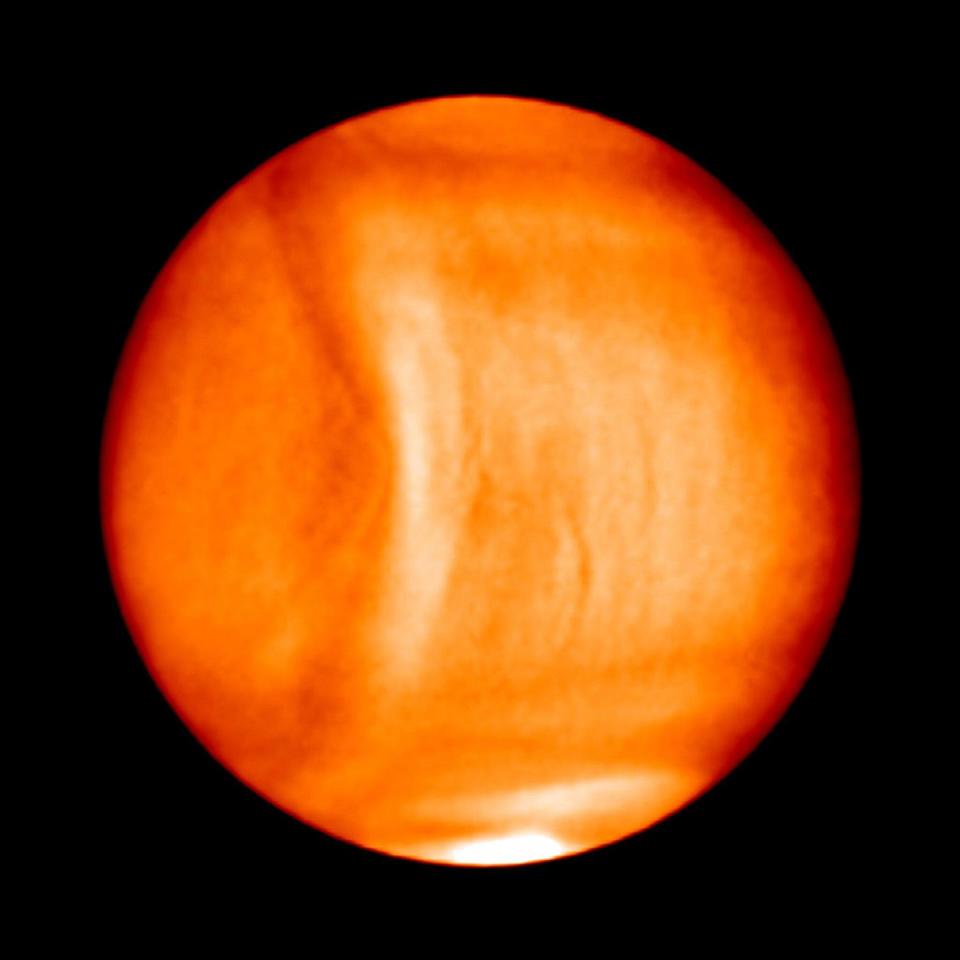Days on Venus Are Getting Shorter Thanks to Wind

Venus is a hellish planet with a toxic, oppressive atmosphere. What few spacecraft we’ve sent to its surface have survived for a few minutes before being crushed by the intense pressures or corroded by poisonous gases. If fact, the atmosphere on Venus is so thick that it even affects the planet’s rotation, according to a new discovery.
In 2015, the Venus orbiter Akatsuki spotted something strange in the planet’s atmosphere: a giant bow wave that stretched across almost the entire surface of the planet. This type of weather pattern doesn’t happen for no reason, and scientists were at a loss to explain what was causing it.
A group of researchers at UCLA and the University of Paris-Saclay may have provided an answer thanks to a new computer simulation. The simulation shows that the bow wave observed by Akatsuki could have been caused by strong winds impacting the planet’s mountains.

According to this simulation, the atmosphere is thick enough and the winds are strong enough that they could actually affect Venus’s rotation. The researchers say that winds could change the planet’s rotation rate by as much as two minutes per day. That might sound like a lot until you realize that a day on Venus is approximately 243 Earth days long, while Venus’s winds orbit the planet once every four Earth days.
Because days on Venus aren’t getting noticeably shorter on the whole, the researchers suspect something else is working to counteract the force of the winds, slowing the planet’s rotation about as much as the atmosphere is speeding it up. The likely culprit is the Sun’s gravity, but there’s no way to know for certain until we send the next spacecraft to Venus, which might be years or decades from now.
Still, this discovery proves we have a lot to learn about our planetary neighbor.
Source: Nature Geoscience
You Might Also Like
